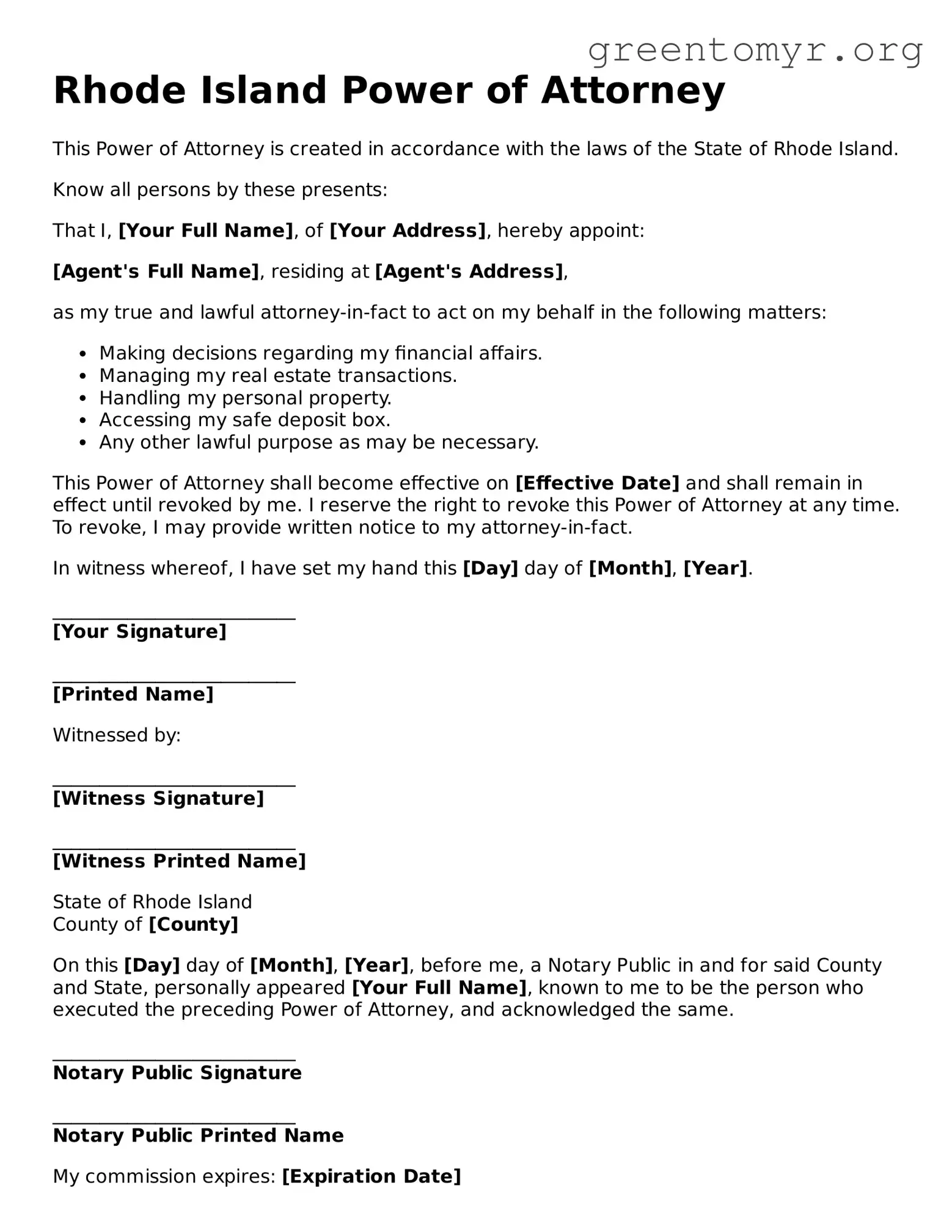Rhode Island Power of Attorney
This Power of Attorney is created in accordance with the laws of the State of Rhode Island.
Know all persons by these presents:
That I, [Your Full Name], of [Your Address], hereby appoint:
[Agent's Full Name], residing at [Agent's Address],
as my true and lawful attorney-in-fact to act on my behalf in the following matters:
- Making decisions regarding my financial affairs.
- Managing my real estate transactions.
- Handling my personal property.
- Accessing my safe deposit box.
- Any other lawful purpose as may be necessary.
This Power of Attorney shall become effective on [Effective Date] and shall remain in effect until revoked by me. I reserve the right to revoke this Power of Attorney at any time. To revoke, I may provide written notice to my attorney-in-fact.
In witness whereof, I have set my hand this [Day] day of [Month], [Year].
__________________________
[Your Signature]
__________________________
[Printed Name]
Witnessed by:
__________________________
[Witness Signature]
__________________________
[Witness Printed Name]
State of Rhode Island
County of [County]
On this [Day] day of [Month], [Year], before me, a Notary Public in and for said County and State, personally appeared [Your Full Name], known to me to be the person who executed the preceding Power of Attorney, and acknowledged the same.
__________________________
Notary Public Signature
__________________________
Notary Public Printed Name
My commission expires: [Expiration Date]
